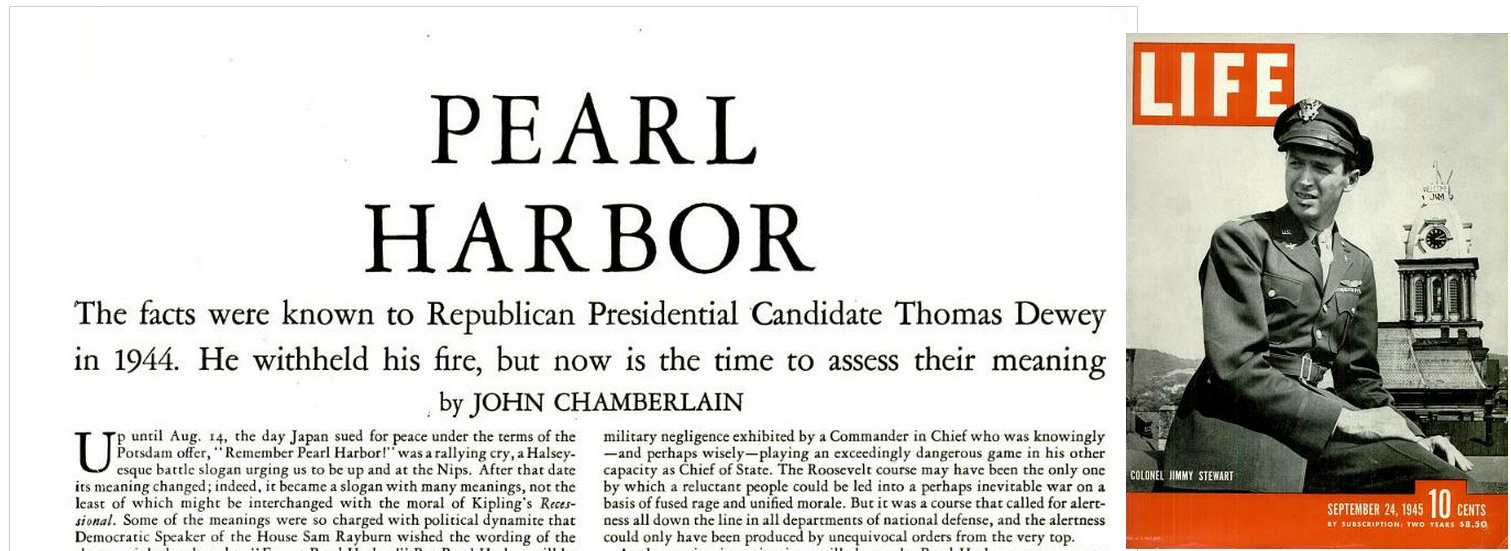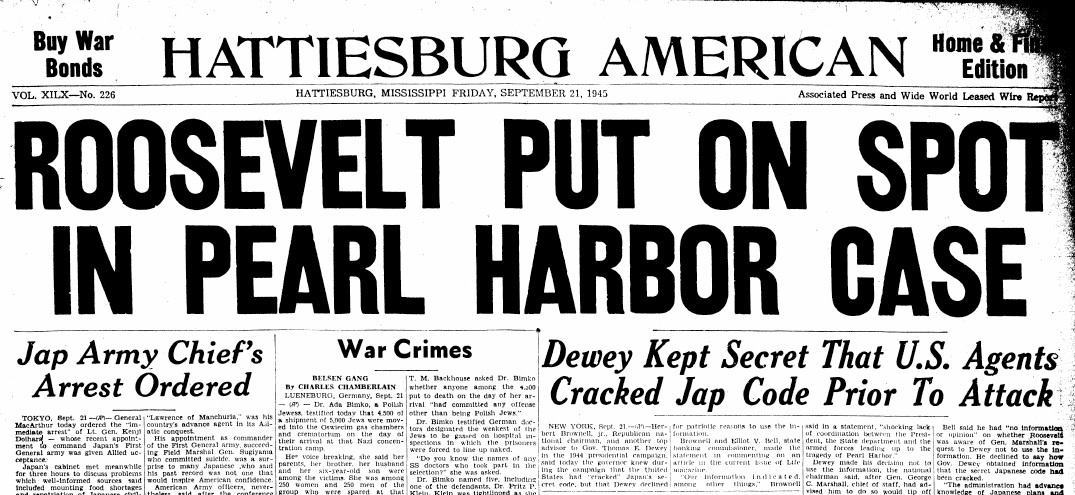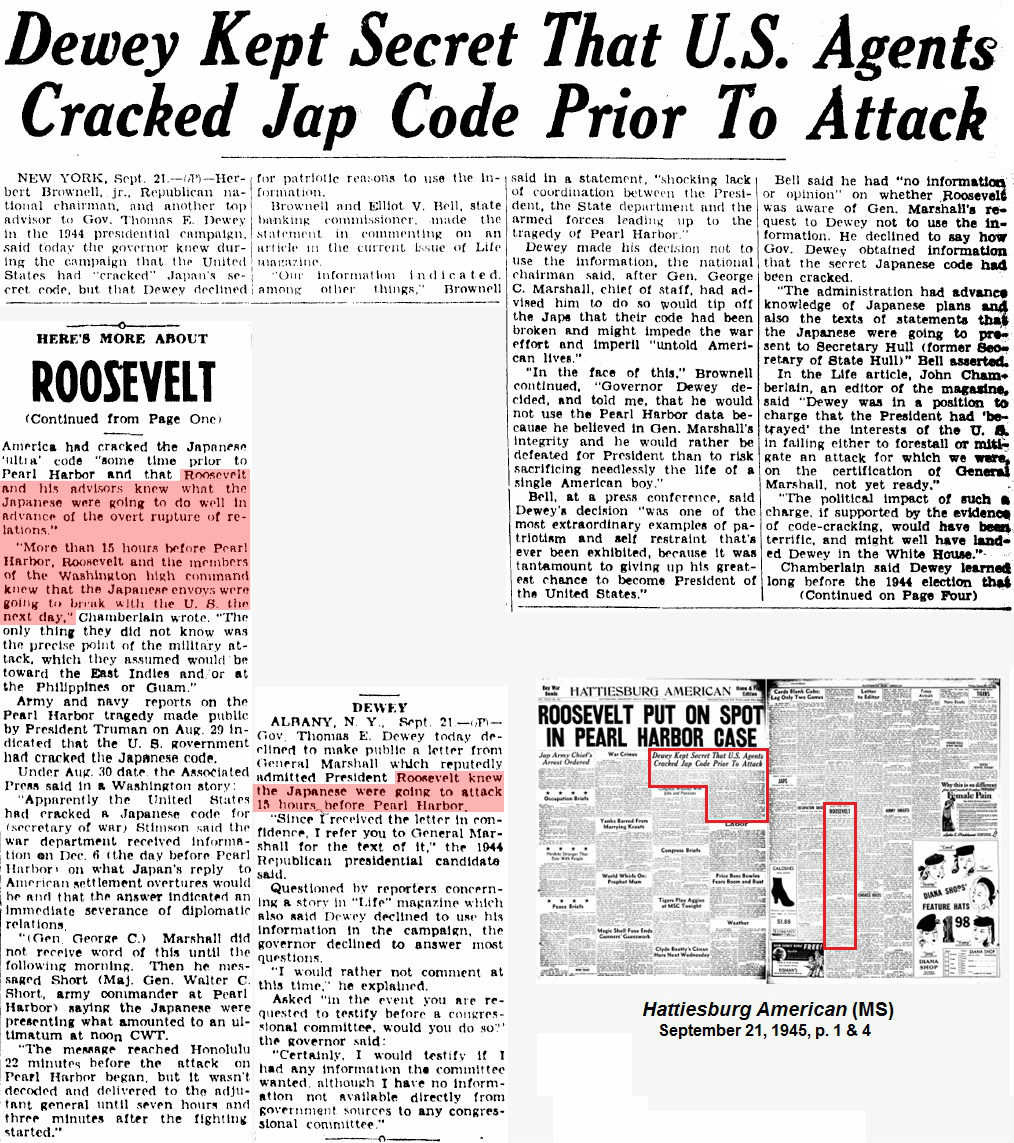from left to right:
President Franklin D. Roosevelt. Thomas
E. Dewey, the Republican candidate in
the 1944 United
States Presidential election, which
he lost to F.D.R. Herbert Brownell
Junior & Elliot V. Bell, Dewey's advisor
in that failed campaign. And General
George C. Marshall.

Five months after the death of F.D.R, Life magazine
published an article in its September
24, 1945 edition, which was written
by John Camberlain, on how F.D.R. had 15
hours prior notice of the Japanese
attack on Pearl Harbour. Camberlain
described how F.D.R.'s opponent in the
1944 presidential elections, Thomas E.
Dewey, had learnt of this fact, and
could have made immense
political capital from proving to the
nation that its president had failed to
even warn his troops, that the
attack—which killed 2,400 people—was
coming. But Dewey had received a letter
from General George C. Marshall,
supposedly threatening that making
public the fact the U.S. was reading the
Japanese code, would have cost American
lives. Dewey's campaign advisers Herbert
Brownell Junior & Elliot V. Bell
confirmed that Dewy has desisted from
using this information, and that it had
surely cost him the election.






































